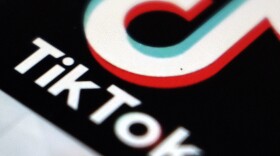
Bobby Allyn
Bobby Allyn is a business reporter at NPR based in San Francisco. He covers technology and how Silicon Valley's largest companies are transforming how we live and reshaping society.
He came to San Francisco from Washington, where he focused on national breaking news and politics. Before that, he covered criminal justice at member station WHYY.
In that role, he focused on major corruption trials, law enforcement, and local criminal justice policy. He NPR's reporting of Bill Cosby's two criminal trials. He was after breaking a major story about the nation's first supervised injection site plan in Philadelphia. In between daily stories, he has worked on several investigative projects, including a how the federal government was quietly hiring debt collection law firms to target the homes of student borrowers who had defaulted on their loans. Allyn also strayed from his beat to cover Philly that divided in the city, the last meal at one , and a remembrance of the man who on a xylophone in the basement of his Northeast Philly home.
At other points in life, Allyn has been a staff reporter at Nashville Public Radio and daily newspapers including The Oregonian in Portland and The Tennessean in Nashville. His work has also appeared in BuzzFeed News, The Washington Post, and The New York Times.
A native of Wilkes-Barre, a former mining town in Northeastern Pennsylvania, Allyn is the son of a machinist and a church organist. He's a dedicated bike commuter and long-distance runner. He is a graduate of American University in Washington.
-
Johansson says she was approached multiple times by OpenAI to be the voice of ChatGPT, and that she declined. Then the company released a voice assistant that sounded uncannily like her.
-
The Justice Department is expected to argue that its clamp down on TikTok is about national security, but Constitutional lawyers say there is no way around grappling with the free speech implications.
-
The San Francisco-based AI juggernaut says it is re-evaluating its policies around "NSFW" content.
-
The high-stakes legal battle could determine the future of the popular app in the U.S. TikTok's legal filing calls the ban law an unprecedented violation of First Amendment rights.
-
Tens of thousands of people earn a living on TikTok. But as creators face down the real possibility of TikTok going away, many are trying to switch to new platforms to save their livlihoods.
-
The New York Daily News, the Chicago Tribune and others contend that the tech companies illegally copied their work without seeking permission or ever paying the publishers.
-
The measure was included in a foreign aid package providing support to Ukraine and Israel. TikTok vowed to challenge the law in federal court.
-
The Senate is poised to pass the bill the House advanced over the weekend. President Biden is set to sign it. From there, TikTok says the battle will move to the courts.
-
The bill, now advancing to the Senate, represents the most serious threat yet to the video app used by half of Americans.
-
Many users are concealing their public photos and sharing instead in private spaces. It's something of a protest against the over-sharing culture of social media. And Gen Z is driving the trend.
-
The company on Friday said it has started blocking California-based news outlets to protest a pending bill that supporters say would extend a lifeline to the ailing news industry.
-
The Taiwan Semiconductor Manufacturing Co., which makes more than 90% of world's most advanced chips, also halted production, but it plans to resume chipmaking overnight.













